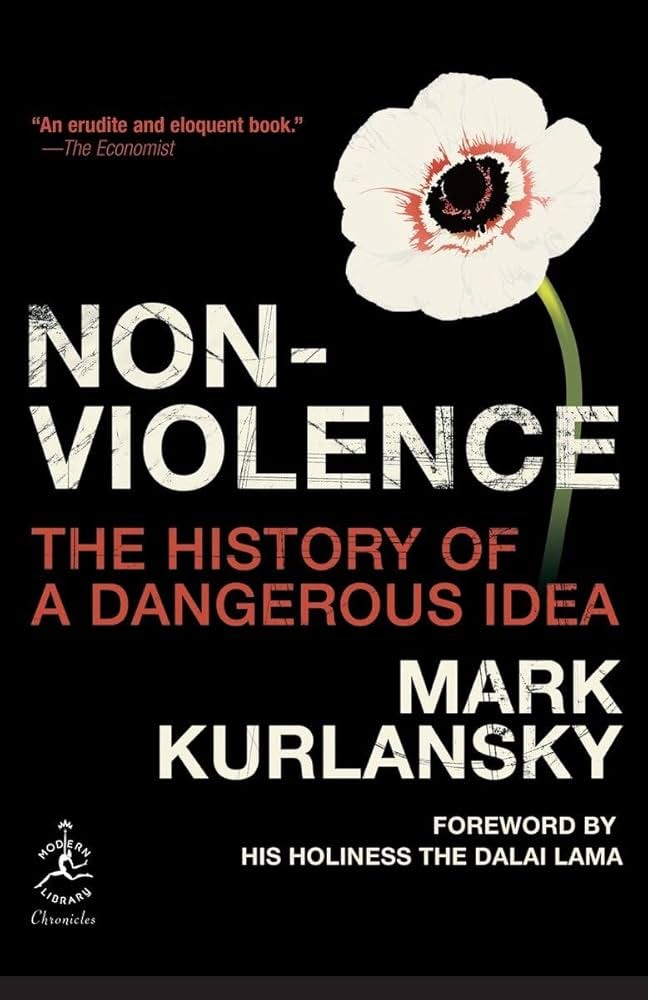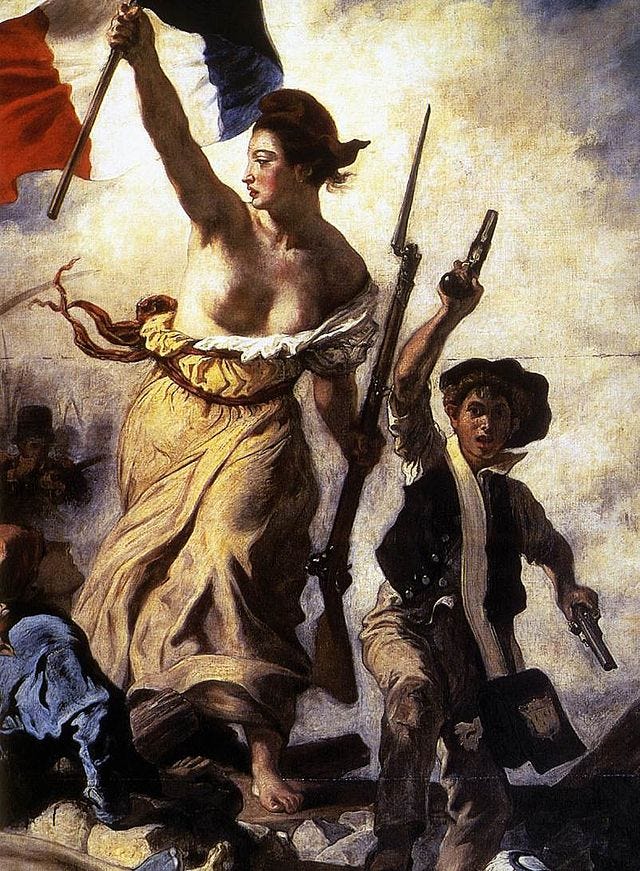Name one revolutionary movement that succeeded with nonviolence!
Usually said with a sneer in the comment section. That’s easy… the Indian independence movement led by Gandhi.
If you’re using that example with a pro-violence advocate, they’ll say that example doesn’t count (probably because Peter Gelderloos told them so). The similarities you see when disagreeing with pro-violence advocates and pro-capitalists is amazing. So much dogma in both cases. So many huge assumptions. And the pro-violence crowd are mostly hardcore communists so that comparison probably stings.
There are plenty of other examples of successful nonviolent revolutions, like Hungary, 1850-57. Gandhi didn’t invent nonviolence of course. The reason there was an Austro-Hungarian empire is because Hungarian Nationalists nonviolently rejected Austrian rule in their territory and basically won their right to self-governance.
Two Central American dictatorships were nonviolently overthrown in El Salvador and Guatemala in 1944… right around the same time Gandhi was helping win independence in India.
In the Philippines the nonviolent “people power” movement ousted one of America’s favorite dictators, Ferdinand Marcos in 1986.
Mark Kurlansky notes how several prominent revolutionaries later admitted that violence hadn’t actually been necessary after all. John Adams wrote to Thomas Jefferson, “The revolution was in the minds of the people, and in the union of the colonies, both of which were accomplished before hostilities commenced.” After the French Revolution Francois Rene de Chateaubriand wrote pretty much the same thing: “The French Revolution was accomplished before it occurred.” Leon Trotsky wrote of the Russian Revolution, “The declaration of October 23 had meant the overthrow of power before the government itself was overthrown.”
Why did these famous revolutionaries say these things? Because ultimately revolution is a mental game. One group loses all legitimacy in the eyes of the public, another group takes their place with public support.
Mark Kurlansky discusses a harsh truth about revolutions when he points out that most of the fighting in a revolution is to decide who gets to be in charge when it’s all over. He writes, “The great lesson of history of revolutions is that a shooting war is not necessary to overthrow the established power but is often deemed necessary to consolidate the revolution itself.”
But if you already know at the outset who you want in charge when it’s over, is there any reason to fight? When it’s 9 to 1 that we the American public want to have actual political control over our economy, our jobs, our lives, and bodies… is it absolutely necessary to fight a war to sort that out? I’m seriously asking the question. And yet anyone who might claim to know the answer would be a liar. Because no one knows the future.
Brian Martin wrote a critique of Peter Gelderloos’s How Nonviolence Protects the State. In it he gives some examples of why nonviolence is superior to violence.
A big one for revolutionaries is that nonviolence tends to win more support than violence. I realize it’s not as romantic as For Whom the Bell Tolls. Just more popular. Which is important when you are undertaking a popular revolution.
He writes, “Violence often alienates potential supporters… People often infer someone else's motivations by looking at the consequences of their actions. If the actions lead to people dying, the inference is that activists are motivated to kill - not to liberate.”
In answer to criticism that nonviolence supports racism and patriarchy (Gelderloos’s most baffling claim considering Dr. Martin Luther King Jr. and the American women’s suffrage movement obviously disagreed) nonviolence is a more inclusive form of action. Martin writes, “Women, children, elderly people and people with disabilities can participate in many forms of nonviolent action. This can be a goal in itself.” This inclusivity has other advantages as well. Nonviolent movements can organize in the open without the need for clandestine operations.
Finally Martin’s most potent response - use of violence will not bring us to a nonviolent future. He writes, “Nonviolent action as a method is compatible with the goal of a nonviolent society.” How can you expect violence to bring nonviolence? It is an unrealistic expectation.
It is a huge advantage that nonviolence stakes out the moral high ground. But moral conviction need not be the reason you support nonviolence. You can also support nonviolence because it is a practical alternative that is also highly successful. A true threat to the establishment.
Nonviolence is the best tool for the job.
Power to the people.
You know what might get people’s attention? A debt jubilee. Shake up the old etch a sketch… clean slate baby. Just kiss all of our debts goodbye at once. I bet people would support that.
Let’s make them pay.



















Share this post